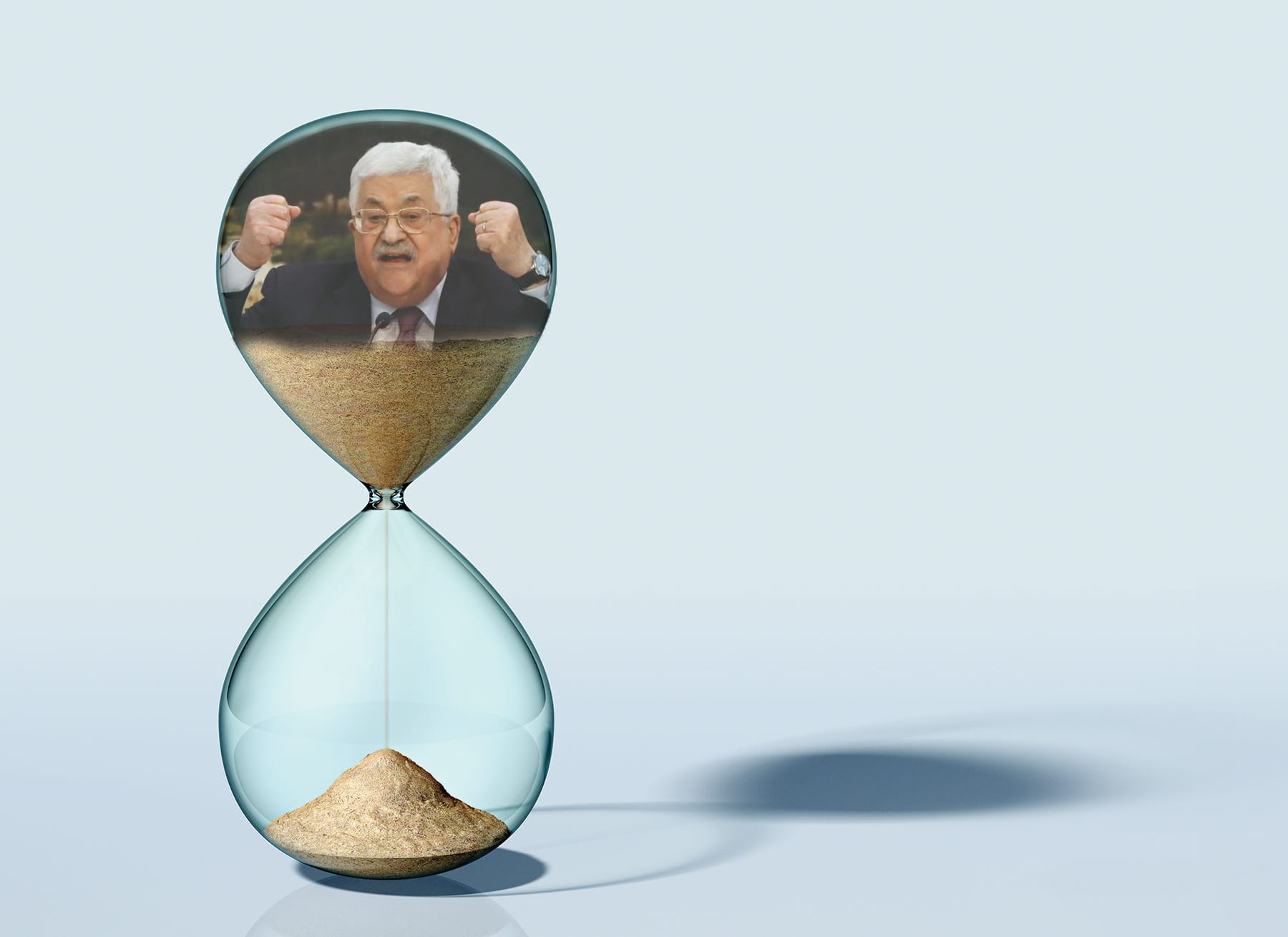
The clock may have finally run out on the Palestinians. The risk they took was playing Russian roulette with time; they were never in a hurry to build a state, and were far more interested in destroying the Jewish one next door.
The Palestinians made a bet with their future. Such high-stakes wagers always are mistakes. They counted on the world never tiring of its eternal hatred of Jews. That certainty made them perpetual victims of a Jewish state. The convenience of anti-Semitism enabled them to localize and leverage the world’s oldest prejudice.
So they rejected several peace offers, launched intifadas, fired rockets, stabbed Jews and tourists, stalled negotiations and placed their future on permanent pause until the land between the Jordan River and the Mediterranean Sea would, finally, be Jew-free.
Well, time finally may be up. The world’s everlasting romance with anti-Semitism has not abated — except, perhaps ironically, in the Persian Gulf. The United Arab Emirates (UAE) and Israel, with the mediating assistance of the United States, recently announced they have agreed to normalize relations, exchange ambassadors, open embassies and welcome tourists between the two countries.
Bahrain and Oman may become the next Gulf states to establish diplomatic ties with Israel, Reuters reported on Aug. 16, citing Israel’s intelligence minister. Saudi Arabia may follow, Newsweek reported on Aug. 16, citing National Security Advisor Robert O’Brien’s comment on “Meet the Press.” Qatar, always conflicted between its financial interest and its fealty to the Muslim Brotherhood, eventually may come around to the Emirates’ way of thinking.
For decades, Egypt and Jordan have maintained enduring peace treaties with Israel. In fact, the blockade that Hamas charges Israel has imposed on Gaza, to the extent that it is even true, is maintained by Egypt on Gaza’s southern border. Both Egypt and Israel have a mutual interest in quelling terrorism — and in the case of Egypt, even if it means thwarting fellow Arabs.
Palestinians assumed borrowed time could be made infinite. Now, they have nothing to show for their rejectionism.
The Gulf states, however, are motivated by a different set of strategic calculations. Yes, Iran’s nuclear ambitions and regional mischief-making makes Israel a natural ally, with the gumption and firepower to deter the ayatollahs. Meanwhile, conflicts among Muslims have gotten worse. Civil wars in Lebanon, Syria and Yemen, longstanding Shiite-Sunni enmities and Islamist entanglements have reached the point where Jews are starting to look more like an Arab’s best friend.
Simply surreal.
But it’s more dire than that. Arab states might no longer see any value in hitching their destinies to the fate of the Palestinians. And for good reason. Palestinians have been moving backward while Gulf countries, inspired by the resourcefulness and innovations of Israel, are enticed by the future, even with the Islamists among them longing for the medieval caliphates. Strategic partnerships with Israel are good for business, combining the financial centers of the Arab world with Israel’s can-do, high-tech, startup culture.
Palestinians have been fighting the bad fight ever since they created the terrorist infrastructure to eliminate the only country in the region with the ingenuity to adopt clean-energy alternatives, turn sand into arable land, desalinate water and harness the entrepreneurial spirit in the guise of companies that Google would eventually gobble.
Shortly after the Six-Day War, the Arab League met in Khartoum, Sudan, and responded to Israel’s peace offerings with its infamous “Three No’s”: No peace, no recognition and no negotiation with Israel.
That tune has changed. Decades later, such firm obstinacy now has the ring of one euphoric “Yes!”
It is true that the Arab street may have a different view of the UAE’s embrace of the Jewish state. Pumping up the populace with anti-Israel hostility has long been the balm for failed domestic policies. Hateful habits die hard. Recognizing the benefits of détente with Israel might take longer for the general public. Neither the Egyptian nor Jordanian people, for instance, are all that chummy with Israelis, notwithstanding the successful peace treaties between their governments.
President Donald Trump’s administration framed its “Ultimate Deal” as “Prosperity to Peace,” which included billions of dollars in infrastructure and business projects invested in the West Bank, Gaza, Egypt and Jordan. It was a nice touch to include Egypt and Jordan. The problem, however, is that Palestinians have never been motivated by economic incentives. Other than bringing an end to Israel, nothing seems to incentivize the Palestinians — and that includes statehood.
For the majority of them, everything, not just nation building, can wait — seemingly forever. Waiting has become a national virtue. Settlements, borders, the right of return, Jerusalem — all are distractions that never deviate from the endgame of outlasting the Zionist experiment. Palestinians are acting as if seven decades of Israeli existence is as ephemeral as an out-of-town tryout.
The Arab world may have finally lost patience. Palestinians assumed borrowed time could be made infinite. Now, they have nothing to show for their rejectionism. Their national aspirations look more like a stunt than a genuine longing.
Palestinians never outgrew terrorism as a political strategy. Meanwhile, the entire world was submerged in acts of terrorism. Those who religiously practiced the dark arts would lose goodwill. And the fecklessness, corruption and cronyism of Palestinian leaders never improved from the fiendish days of Yasser Arafat.
With the warring frictions between the Palestinian Authority and Hamas, and the barbaric use of children as human shields and hospitals as command centers for launching rockets, there were plenty of reasons to stop rooting for the Palestinians — at least among Arab nations with commerce on their minds. It was time to let them go their own way.
Israel long maintained it didn’t have a partner in peace. Arab states might be coming around to that same conclusion. Perhaps that’s why the UAE has quietly forgotten the “land for peace” exchange that once seemed inevitable to achieve a comprehensive resolution. Today, it’s possible to view Israel as a sovereign neighbor without talking about disbanding settlements. The significance of that change in first principles cannot be overstated.
Airlines are planning to fly from Tel Aviv to Abu Dhabi. Meanwhile, Gazans are still toying with incendiary balloons.
Enough said.
Surely, Palestinians are feeling betrayed by their fellow Arabs. They shouldn’t. There comes a point when playing the long game goes on much too long. Other games materialize. And fan support disappears.
Thane Rosenbaum is a novelist, essayist, law professor and Distinguished University Professor at Touro College, where he directs the Forum on Life, Culture & Society. He is the legal analyst for CBS News Radio. His most recent book is titled “Saving Free Speech … From Itself.”


































 More news and opinions than at a Shabbat dinner, right in your inbox.
More news and opinions than at a Shabbat dinner, right in your inbox.